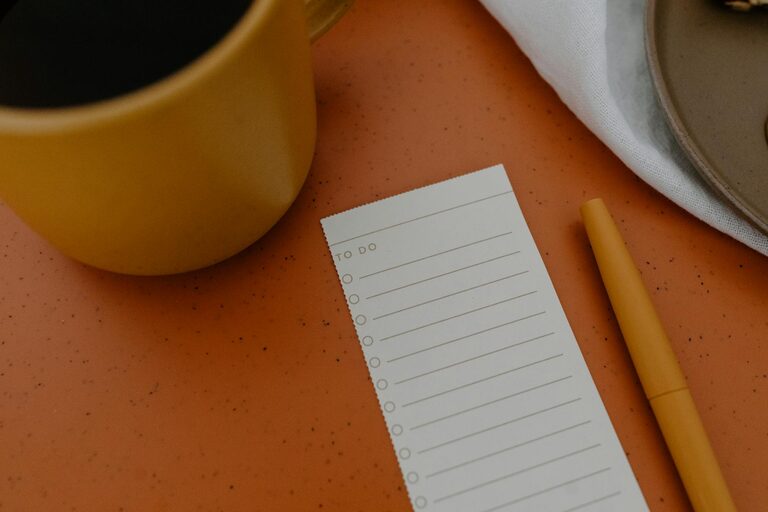Building new habits is an excellent way to improve your life, whether it’s exercising regularly, reading more, or drinking enough water. But the biggest challenge isn’t just starting a new habit—it’s staying consistent over time. Tracking your habits can help you stay on course by providing clear, visual feedback and motivation.
In this post, we’ll explore practical strategies for tracking your habits effectively and staying consistent, so you can turn your goals into lasting routines.
Why Track Your Habits?
Tracking habits serves several purposes:
– Creates Awareness: Seeing your progress helps you understand your behavior patterns.
– Boosts Motivation: Visual proof of success encourages you to keep going.
– Holds You Accountable: Tracking can create a sense of responsibility to stick to your goals.
– Reveals Obstacles: Identifying days you miss a habit can help you spot and solve problems.
Once you understand these benefits, it becomes easier to adopt a tracking method that fits your lifestyle.
Choosing the Right Habit Tracking Method
There are many ways to track habits, so select one that’s simple and enjoyable for you.
1. Paper Habit Trackers
A traditional method is to use a physical habit tracker:
– Bullet Journals: Customize your habit tracker with colorful pens, stickers, and reminders.
– Printable Trackers: Download free or paid printable templates that list your habits by day/month.
– Wall Calendars: Mark off each day you complete your habit with an X or a sticker.
Paper methods are tactile and can feel rewarding, especially if you like journaling or creative planning.
2. Digital Habit Tracking Apps
If you prefer tech solutions, many apps make habit tracking easy:
– Habitica: Gamifies habit tracking by turning your goals into an RPG.
– Loop (Android): Offers simple, free tracking with charts and reminders.
– Streaks (iOS): Focused on building consecutive daily habits.
– Google Keep or Notes: For basic tracking via checklists.
Apps often provide notifications and progress visuals, nudging you toward consistency.
3. Spreadsheets
Creating a habit tracker in Excel or Google Sheets allows customization and automatic progress calculations. Use colors to highlight completed days and easily add or remove habits.
Setting Up Your Habit Tracking System
To make tracking effective, keep these tips in mind:
Keep it Simple
Track only a few key habits at once. Focus is better than overwhelming yourself.
Define Clear Habit Goals
Be specific about what your habit entails. Instead of “read more,” write “read 10 pages.”
Choose a Tracking Frequency
Decide if you’ll track daily, weekly, or multiple times per day depending on the habit.
Include Reminders
Use alarms, app notifications, or sticky notes to prompt habit actions.
Tips to Stay Consistent
Tracking is only part of the journey. Consistency depends on sustainable habits and motivation techniques.
1. Build Habits into Your Routine
Pair new habits with existing daily activities. For example, meditate right after brushing your teeth.
2. Focus on Small Steps
Start with manageable goals, like walking 5 minutes daily instead of an hour.
3. Celebrate Successes
Reward yourself for milestones, such as one week or one month of consistency.
4. Use the “Don’t Break the Chain” Technique
Mark off each day you complete your habit on a calendar. Try to keep your streak going.
5. Be Kind to Yourself
Missed days are normal. Avoid harsh self-criticism and simply resume your habit the next day.
6. Adjust and Reflect
Regularly review your tracking data. If a habit is consistently missed, consider tweaking it or the approach.
Example: Tracking a Water Intake Habit
Let’s say you want to drink 8 cups of water daily.
– Set a daily goal: 8 cups.
– Track using: a paper chart with 8 circles to fill each day.
– Reminders: Set hourly phone alarms or place a water bottle in sight.
– Celebrate: At the end of the week, treat yourself to something small if you meet your goal over 5 days.
– Review: If you frequently miss cups in the evening, adjust your routine to drink more earlier in the day.
Conclusion
Tracking your habits is a powerful tool to build consistency and achieve meaningful change. By choosing a tracking method that suits your preferences, setting clear goals, and using practical strategies to maintain motivation, you’ll ready yourself for success without feeling overwhelmed. Remember, consistency is about progress, not perfection. Start tracking today and watch your small steps add up to big results!

